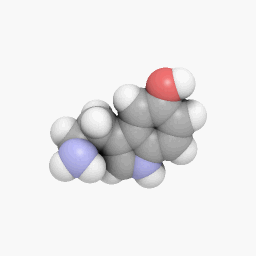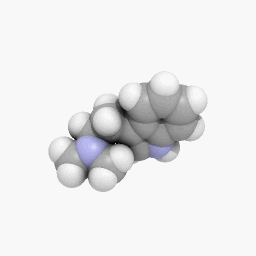Altered states of consciousness (ASC), sometimes called non-ordinary states, include various mental states in which the mind can be aware but is not in its usual wakeful condition, such as during hypnosis, meditation, hallucination, trance, and the dream stage. Altered states can occur anywhere from yoga class to the birth of a child. They allow us to see our lives and ourselves with a broader lens and from different angles of perception than the ordinary mind.
Some reply too heavily on the ordinary mind. In effect, individuals painstakingly analyze themselves and their problems with little payoff, as if the ordinary mind is the only and best tool for healing.
Many of us live our lives and meet our challenges with intellect, neglecting the opportunities that altered states offer. Maybe we just prefer the safety and predictability of the ordinary mind and the world of thought. We know what’s wrong intellectually but we feel stuck when it comes to getting relief. We feel stuck, in part, because we are relying too heavily on figuring out our problems. When we only use the ordinary mode of consciousness our problems can become self-perpetuating. We are like a person stuck in a hole who digs with a shovel rather than climbing out with a ladder. Sometimes we can’t see the ladder with the ordinary mind. It’s times like these that dropping the effort to figure ourselves out can be the best medicine. Not dropping the effort to get better, but giving the intellect a rest for a while.
Thinking through our problems is an important part of healing, but we may end up viewing the problems we face solely with the same mind that helped create them. Altered states of consciousness are sacred and powerful places which reveal that there is more to ourselves and our potential for healing than the ordinary mind can grasp (Smith, 2015).
Some reply too heavily on the ordinary mind. In effect, individuals painstakingly analyze themselves and their problems with little payoff, as if the ordinary mind is the only and best tool for healing.
Many of us live our lives and meet our challenges with intellect, neglecting the opportunities that altered states offer. Maybe we just prefer the safety and predictability of the ordinary mind and the world of thought. We know what’s wrong intellectually but we feel stuck when it comes to getting relief. We feel stuck, in part, because we are relying too heavily on figuring out our problems. When we only use the ordinary mode of consciousness our problems can become self-perpetuating. We are like a person stuck in a hole who digs with a shovel rather than climbing out with a ladder. Sometimes we can’t see the ladder with the ordinary mind. It’s times like these that dropping the effort to figure ourselves out can be the best medicine. Not dropping the effort to get better, but giving the intellect a rest for a while.
Thinking through our problems is an important part of healing, but we may end up viewing the problems we face solely with the same mind that helped create them. Altered states of consciousness are sacred and powerful places which reveal that there is more to ourselves and our potential for healing than the ordinary mind can grasp (Smith, 2015).
“No problem can be solved from the same
level of consciousness that created it”
Albert Einstein
Main Arguments Against ASC
As compared to ordinary states of consciousness (OSC), three of the main arguments against ASC are that they:
Regarding the first argument, we must immediately confront the relativity of what is "normal" and "rational". What we consider "normal" in post-industrial, Western societies differs significantly from the experiences of other cultures.
As the to the second issue, undoubtedly the search for and consequences of ASC can be destructive, as in the personal and social costs of drug addiction, which is why various traditional societies provide training on and ritualize the use of psychoactive drugs, which cause no harm, in contrast with what occurs among our culture. ASC are not necessarily beneficent. Although just having unusual experiences and ASC is not in and of itself a sign of dysfunction, this does not deny that unpleasant ASC are also encountered in a seriously disordered mind. But on the other side of the coin, the vast majority of atrocities have been planned while in OSC, from decisions to wage unnecessary wars and genocides to the socially accepted mistreatment of non-human sentient beings to save some money.
The final point concerns the presumption that ASC "create phenomenal contents of consciousness that misrepresent or create delusional beliefs of the surrounding world and oneself" and the OSC does not. This position goes against not only centuries old critiques of naïve realism in both the West and the East, but a vast amount of research on perception, cognition, and personality. For example, perceptual illusions show that our sense routinely distort stimuli in various ways. Researchers have observed that physiological habituation, or that repeated exposure to a stimulus may make it impossible to perceive. Furthermore, studies on other species show how limited our perceptual channels are compared to theirs. OSC is geared to detect certain aspects of the environment and disregard others, and emotions and cognitions routinely have a self-serving bias and distort how we evaluate and remember events. Thus, the growing body of psychological and neuroscientific research suggests that our perceptions of the world in OSC are an illusion. Research suggests that a mere approximation to what may actually be "there" is selected (Cardeña, 2011).
Most cultures throughout history (roughly 90%) until very recently have established forms to attain ASC (often during well-developed rituals) suggests that they have considered them positive rather than as the purveyors of misinformation (Bourguignon, 1973). Shamanism is characterized by the controlled practice of altering the shaman's (and often his or her audience's) state of consciousness, or experiencing other realities.
- go against what is normal,
- wreak havoc at personal and social levels, and
- produce a delusional account of reality, as compared to OSC.
Regarding the first argument, we must immediately confront the relativity of what is "normal" and "rational". What we consider "normal" in post-industrial, Western societies differs significantly from the experiences of other cultures.
As the to the second issue, undoubtedly the search for and consequences of ASC can be destructive, as in the personal and social costs of drug addiction, which is why various traditional societies provide training on and ritualize the use of psychoactive drugs, which cause no harm, in contrast with what occurs among our culture. ASC are not necessarily beneficent. Although just having unusual experiences and ASC is not in and of itself a sign of dysfunction, this does not deny that unpleasant ASC are also encountered in a seriously disordered mind. But on the other side of the coin, the vast majority of atrocities have been planned while in OSC, from decisions to wage unnecessary wars and genocides to the socially accepted mistreatment of non-human sentient beings to save some money.
The final point concerns the presumption that ASC "create phenomenal contents of consciousness that misrepresent or create delusional beliefs of the surrounding world and oneself" and the OSC does not. This position goes against not only centuries old critiques of naïve realism in both the West and the East, but a vast amount of research on perception, cognition, and personality. For example, perceptual illusions show that our sense routinely distort stimuli in various ways. Researchers have observed that physiological habituation, or that repeated exposure to a stimulus may make it impossible to perceive. Furthermore, studies on other species show how limited our perceptual channels are compared to theirs. OSC is geared to detect certain aspects of the environment and disregard others, and emotions and cognitions routinely have a self-serving bias and distort how we evaluate and remember events. Thus, the growing body of psychological and neuroscientific research suggests that our perceptions of the world in OSC are an illusion. Research suggests that a mere approximation to what may actually be "there" is selected (Cardeña, 2011).
Most cultures throughout history (roughly 90%) until very recently have established forms to attain ASC (often during well-developed rituals) suggests that they have considered them positive rather than as the purveyors of misinformation (Bourguignon, 1973). Shamanism is characterized by the controlled practice of altering the shaman's (and often his or her audience's) state of consciousness, or experiencing other realities.
Why Do We Seek To Alter Our Consciousness?
|
An extraterrestrial would find it puzzling that humans spend roughly one third of their lives in sleep states yet pay little attention to them. Besides this inbuilt alteration of consciousness, humans (and other species) seek to affect their consciousness in other ways. N,Ndimethyltryptamine (DMT) is found in many plants and animals, and its molecular structure is extraordinarily similar to that of the neurotransmitter serotonin (Cardeña and Winkelman, 2011). Indeed the most ubiquitous drug supplier we have is our own nervous system, who function is based on various neurotransmitters with very similar structures to those of psychoactive drugs.
|
It has been postulated that ASC can have healing, social, or epistemological (the investigation of what distinguishes justified belief from opinion) functions. ASC can help human beings:
- make small adjustments so we can be more effective at our tasks,
- enhance the experience of life,
- explore nonfactual possibilities that may be actualized through creative ways,
- enhance the sense of meaningfulness in life and heal in different ways, and
- obtain alternate routes to better comprehend ourselves and the universe.
References
Bourguignon, E. (1973). Religion, Altered States Of Consciousness, and Social Change. Columbus: Ohio State University Press
Cardeña, E. (2011). Altered Consciousness Is a Many Splendored Thing. Journal of Cosmology, [online] 14. Available at: http://journalofcosmology.com/Consciousness150.html [Accessed 27 Sep. 2017].
Cardeña, E. and Winkelman, M. (2011). Altering consciousness. A Multidisciplinary Perspective. 2nd ed. Santa Barbara, Calif.: Praeger.
Smith, C. (2015). Altered States of Consciousness. [online] Psychology Today. Available at: https://www.psychologytoday.com/blog/shift/201508/altered-states-consciousness [Accessed 31 Aug. 2017].
Cardeña, E. (2011). Altered Consciousness Is a Many Splendored Thing. Journal of Cosmology, [online] 14. Available at: http://journalofcosmology.com/Consciousness150.html [Accessed 27 Sep. 2017].
Cardeña, E. and Winkelman, M. (2011). Altering consciousness. A Multidisciplinary Perspective. 2nd ed. Santa Barbara, Calif.: Praeger.
Smith, C. (2015). Altered States of Consciousness. [online] Psychology Today. Available at: https://www.psychologytoday.com/blog/shift/201508/altered-states-consciousness [Accessed 31 Aug. 2017].




